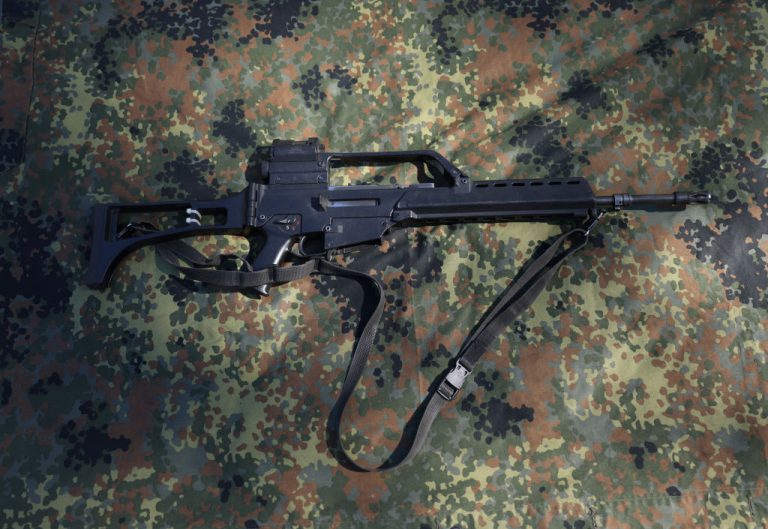With Ukraine facing the threat of a potential Russian invasion at any time, Estonia, an ally of the North Atlantic Treaty Organization (NATO), wants to provide Ukraine with military support.
However, Germany is blocking Estonia from doing so since the weapons it wants to send to Ukraine are of German origin. Berlin’s blockade comes due to the country’s policy against exporting arms to tense regions.
“The principle governing arms exports is always the same—whether they come directly from Germany or from third countries—and no permission has been issued at this stage… It is not possible to estimate the outcome of the process at this moment,” a German government official told the Wall Street Journal (WSJ). An Estonian official told the media outlet that his country hopes to soon get approval from Germany.
Estonia’s military contribution to Ukraine might not be too significant and is unlikely to cause any massive change in the Ukraine-Russian military conflict should it occur. However, by not allowing Estonia to export arms, Germany’s action might be interpreted by Russia as an indication of a rift among the EU members. Allowing Estonia to transfer arms will also pave the way for other nations holding German-made weapons to transfer them as well.
“I can understand the wish to support Ukraine, and that’s exactly what we are doing already… We have to do everything to de-escalate. Currently, arms deliveries would not be helpful in this respect, there is agreement on this in the German government,” German Defence Minister Christine Lambrecht told a local paper.
Success
You are now signed up for our newsletter
Success
Check your email to complete sign up
Some have criticized the German government’s stand on the matter, insisting that arms export of some kind is essential for defensive purposes. According to Henning Otte, who sits on the Bundestag’s defense committee, Germany should not reject Ukraine’s request for a defensive weapon, the deprivation of which might lead to the country being invaded by Russia. However, the term defensive is subjective. Some of the defensive weapons can be used offensively as well.
Talking about exporting weapons can turn out to be politically dangerous, something that complicates honest discussion on the issue. For instance, when Robert Habeck from the Greens’ party supported sending defensive weapons to Ukraine last year, he ended up getting so severely criticized that Habeck later claimed he was only talking about demining equipment.
Though Germany is refusing to allow the export of German-origin arms to Ukraine at present, Kyiv is a customer of German defense equipment. In 2020 and during the first six months of 2021, Germany approved 97 military exports to Ukraine worth 5.2 million euros ($5.8 million.)
Meanwhile, the three Baltic states of Latvia, Lithuania, and Estonia have confirmed that they will be sending U.S.-made Stinger and Javelin missiles to the Ukraine. “In light of Russia’s increase in military pressure in and around Ukraine, the Baltic States have decided to answer Ukrainian needs and to provide additional defense-related assistance… This aid will further enhance Ukraine’s capability to defend its territory and population in case of a possible Russian aggression,” the countries said in a statement.
In a recent speech during the Davos Agenda virtual event, German Chancellor Olaf Scholz stated that “staying silent is not a sensible option” after several years of rising tensions. He insisted that European borders “must not be moved by force.” With regard to the talks taking place between the United States, NATO, Europe, and Russia, Scholz believes it’s “too early” to assess whether such efforts might help in de-escalating tensions.
The German Chancellor stated that his country’s perspective in the talks was about “our commitment to Ukraine’s territorial integrity, and about a key principle of our common European peace order, that borders must not be moved by force, that right makes might and not the other way around… [The Russian side is] aware of our determination… I hope they realize the gains of cooperation outweigh the price of further confrontation.”

















